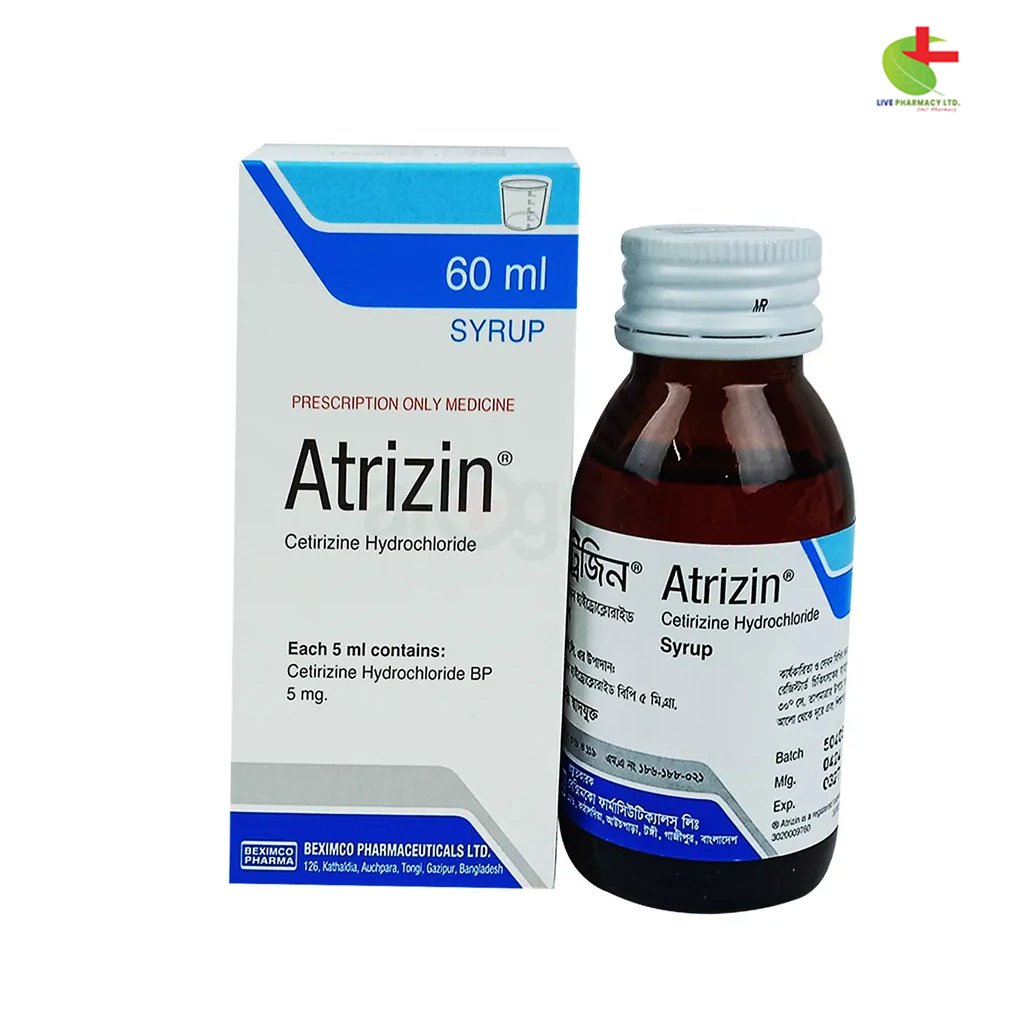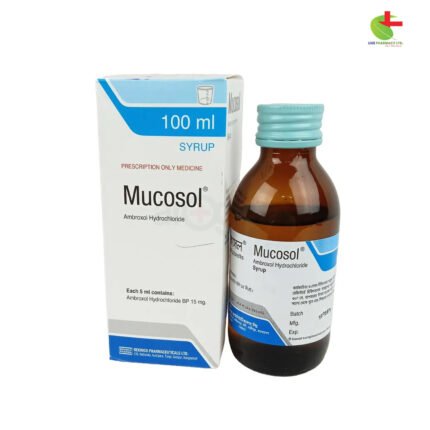Atrizin Syrup
30.00৳ Bottle (60ml)
- Atrizin is prescribed for seasonal and perennial allergic rhinitis, chronic idiopathic urticaria, and allergen-induced asthma.
- Contains Cetirizine Hydrochloride, a potent H1 receptor antagonist with minimal drowsiness.
- Available in oral tablets, syrup, and injectable forms for adults and children over 6 months.
- Use with caution during pregnancy and lactation; avoid operating heavy machinery if drowsy.
 Brand
Brand
|
Beximco Pharmaceuticals Ltd |
|---|---|
 Generics
Generics
|
Ambroxol Hydrochloride |
 Type
Type
|
Syrup |
Indications
Atrizin is designed to provide relief from symptoms related to both seasonal and perennial allergic rhinitis. It is also effective in treating uncomplicated skin manifestations of chronic idiopathic urticaria and asthma triggered by allergens.
Pharmacology
Atrizin contains Cetirizine Hydrochloride, a highly effective H1 receptor antagonist with minimal anticholinergic or antiserotonic effects. At recommended doses, it produces negligible drowsiness and does not alter behavior. Cetirizine targets the histamine-driven early phase of allergic reactions, curbs inflammatory cell migration, and diminishes late-phase allergic responses.
Pharmacokinetics: Cetirizine reaches peak plasma concentrations of 257 mcg/L within one hour (980 mcg/L in children). While food intake slightly affects absorption rate, it does not impact the overall absorption extent. Peak blood levels occur 30 to 60 minutes post-administration of a 10 mg dose, with a plasma half-life of about 11 hours. Renal clearance is 30 ml/minute, and excretion half-life is approximately 9 hours.
Dosage & Administration
- Oral Dosage:
- Adults & Children (6 years and older): 1 tablet or 2 teaspoonfuls daily, or 1 teaspoonful twice daily.
- Children (2-6 years): 1 teaspoonful once daily, or 1/2 teaspoonful twice daily.
- Children (6 months to 2 years): 1/2 teaspoonful once daily, with a maximum of 1/2 teaspoonful every 12 hours for ages 12-23 months.
- Injectable Dosage:
- Adults & Adolescents (12 years and older): 10 mg intravenously once every 24 hours.
- Children (6 to 11 years): 5 mg or 10 mg intravenously, based on symptom severity.
- Children (6 months to 5 years): 2.5 mg intravenously.
Interactions
Cetirizine does not show significant interactions with drugs like Theophylline, Azithromycin, Pseudoephedrine, Ketoconazole, or Erythromycin.
Contraindications
Atrizin should not be used by individuals with known hypersensitivity to Cetirizine or hydroxyzine.
Side Effects
Common side effects include drowsiness. Less frequent side effects may include dizziness and gastrointestinal discomfort.
Pregnancy & Lactation
Classified as FDA Category B, Cetirizine should only be used during pregnancy if absolutely necessary. It is excreted in breast milk; therefore, caution is advised for breastfeeding mothers.
Precautions & Warnings
Exercise caution when operating vehicles or machinery due to potential drowsiness.
Use in Special Populations
- Hepatic/Renal Insufficiency: Clearance is reduced in patients with mild to moderate hepatic or renal impairment. Plasma levels are increased and the elimination half-life extends to about 20 hours in dialysis patients.
- Pediatric Use: Safe for use in children aged 6 months to 5 years.
- Elderly: Clearance is decreased in elderly patients, proportional to reduced creatinine clearance.
Therapeutic Class
Sedating Antihistamine
Storage Conditions
Store Atrizin in a cool, dry place away from light and heat. Keep out of reach of children.













Reviews
There are no reviews yet.